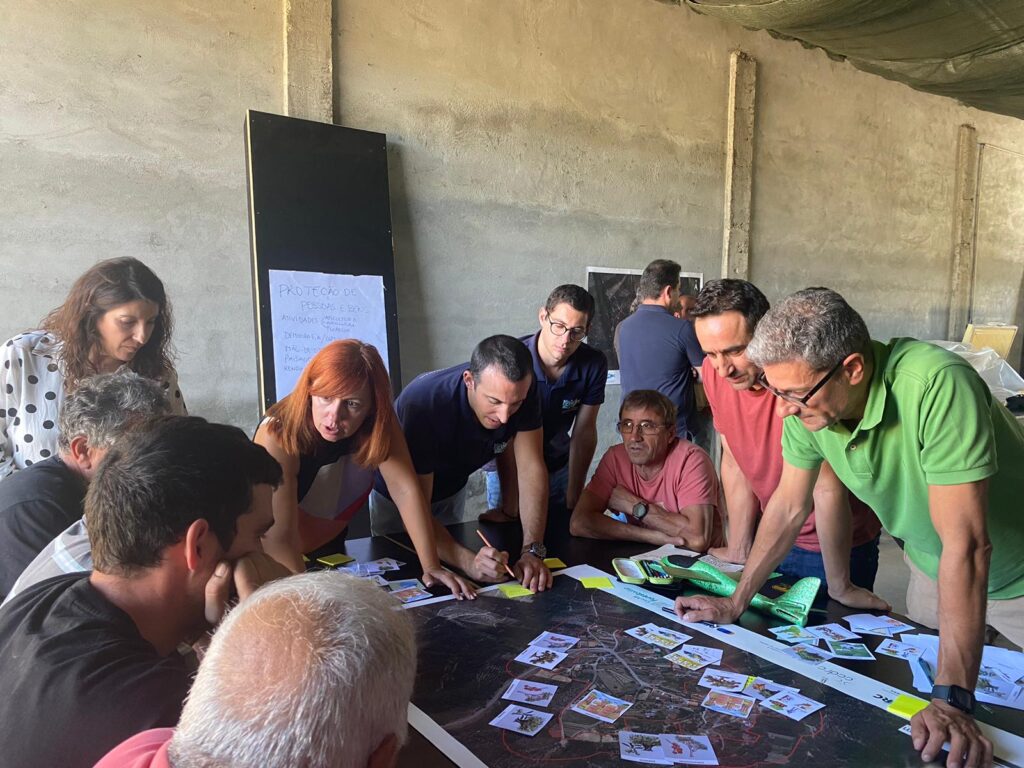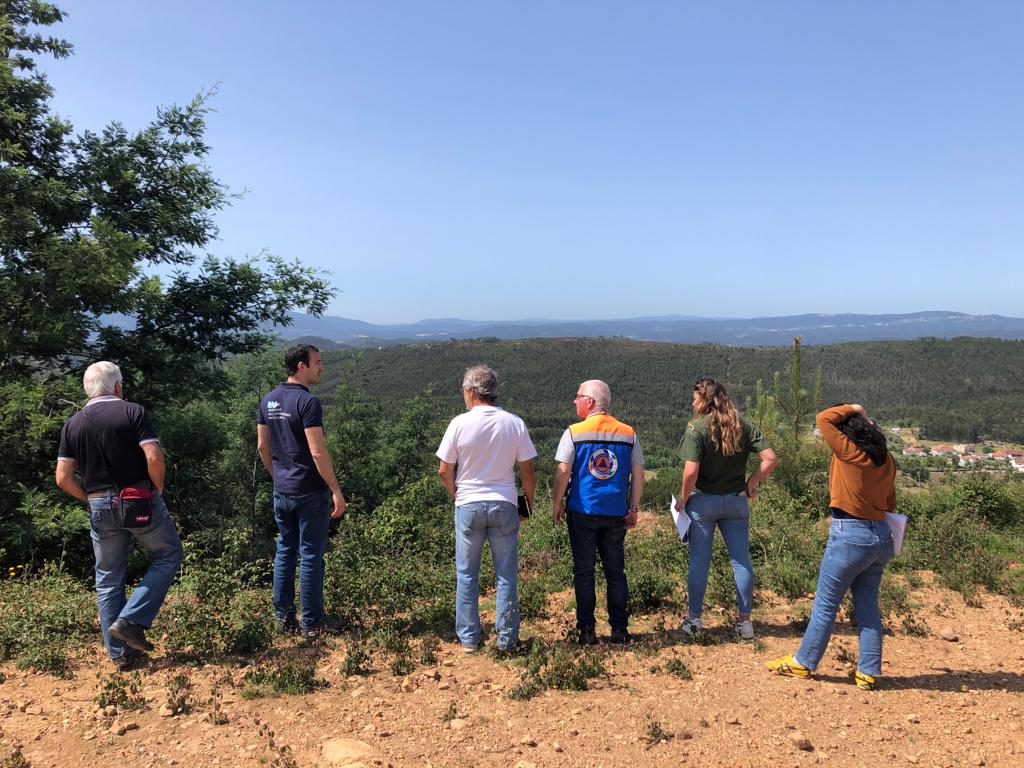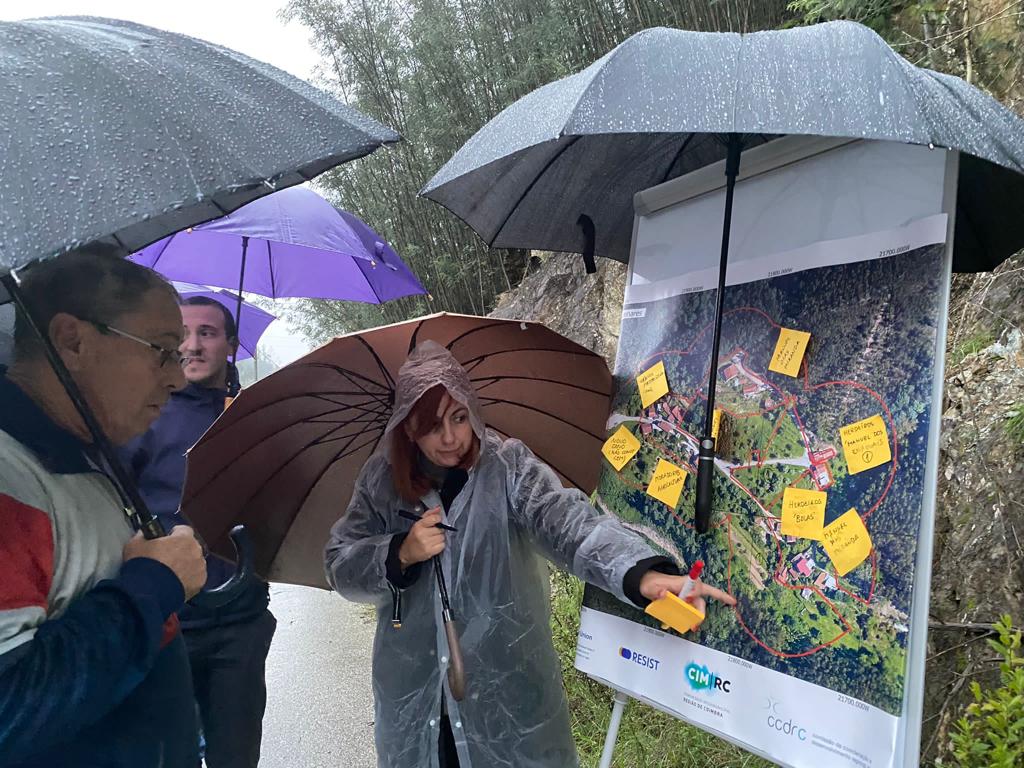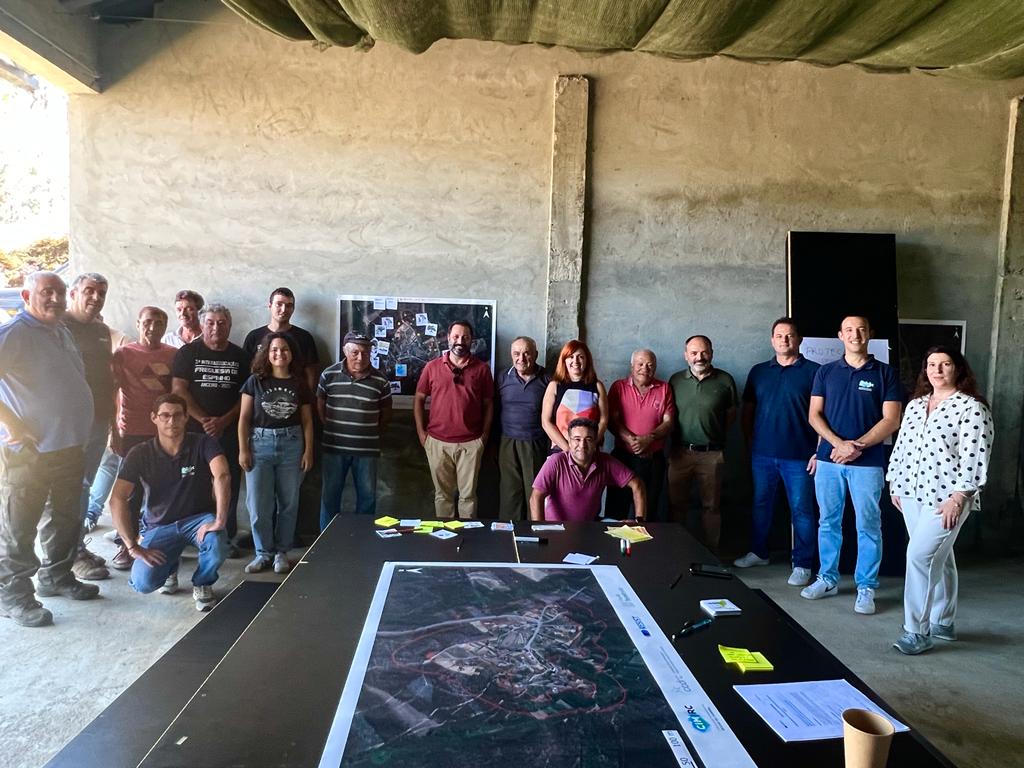In the RESIST region of Central Portugal, CoLAB ForestWISE, the Intermunicipal Community of Coimbra Region (CIM Região de Coimbra), and local municipalities are developing participatory actions that involve local communities in the definition of a landscape transformation process set to be operational in 2024.
The pilot areas, located in Coimbra region, are framed by two recent public policies targeting landscape transformation towards forest fire resilience, and the protection of at-risk people and assets.
These are:
- The Integrated Areas of Landscape Management (AIGP – Áreas Integradas de Gestão da Paisagem), a policy framework to address landscape planning and management, increasing the scale of managed forest, thus promoting fire resilience, enhancing natural capital, and promoting rural economy.
- Village Condominiums (CA – Condomínios de Aldeia), an integrated program for rural villages in forest territories ensuring fuel management around populated settlements.
In a bid to improve governance models underlying these policy tools, the first phase of the task gathers input from local forest owners, residents and other stakeholders on the definitions of landscape transformation and how they could be put into practice. The CIM Região de Coimbra will be responsible for the implementing this plan, which includes fuel management activities and new plantations, and will count on the technical support of CoLAB ForestWISE in best practices identification towards biomass valorisation and other activities that might contribute to rural economy diversification.

Looking ahead to 2024, there are six intervention plans set to take place in the different municipalities of pilot areas (Coimbra, Condeixa-a-Nova, Góis, Mortágua, Tábua and Vila Nova de Poiares). Two relate to AIGP and four to CA. Tailored participatory approaches are being applied in each pilot area, adjusting to the unique characteristics and diversity of the territory and its stakeholders. These initiatives, which have already involved more than 60 participants, resulted in the first drafts of the intervention plans, which will be validated at a technical level by the municipalities.
The participatory approaches included several technical visits and meetings involving the municipalities, the parish councils, and other key stakeholders. These meetings were crucial in identifying key issues related to local biophysical and socioeconomic contexts and relevant local actors as well as highlighting the best participatory approaches for each pilot area. Additionally, communication actions are being developed, including the publishing of leaflets in local villages, to involve more participants in the process. Four local workshops aimed at identifying and engaging with local forest owners have already been held.


Workshop participants expressed concerns about costs and human resources for landscape maintenance. However, most participants were enthusiastic about the opportunities presented by RESIST and expressed a willingness to support the initiative.
The RESIST Project embraces the mission of making landscape transformation an enduring and sustainable process supported by landowners’ vision and aims.












